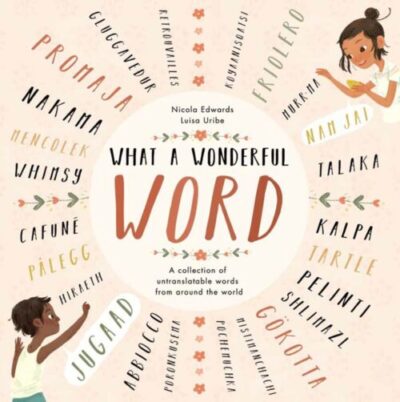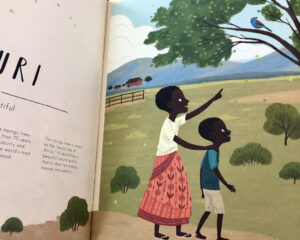
Words, Wonderful Words…
I know a lot of people — myself included — who like to choose one word (or a couple) as a way to set an intention for the year. Naming things – hopes, feelings, problems, dreams – can serve as one anchor point from which to interpret our lives.
Day to day, it’s easy to drift and miss a lot of what happens. We think it was this way, but when we stop, dig deeper, ask ourselves questions — What worked? What didn’t? How did I feel about it? — we often find there was more on the “good” side than we first remembered.
I’ll be choosing a word for the year. How about you?
Even if you’re not used to thinking about such things, there’s no denying that words are fascinating. In fact, did you know that in 2010, researchers from Harvard and Google who looked at the words in digitized books estimated that there were over 1 million words in the English language? Native English-speaking adults have a vocabulary of some 20,000 – 35,000 words — not anywhere near a million, but still a lot.
WHAT A WONDERFUL WORD, by Nicola Edwards, illustrated by Luisa Uribe is not about English, or even about the ordinary kinds of words that we use day in and day out. Instead, the author describes these as “untranslatable” words from various parts of the world. Some are related to a particular way of life. Take the word Murr-ma [Mer-mah], for example, from the Wagiman language of Australia. This word means “to walk through the water, searching for something with only your feet.” It is also the name given to a prosthetic leg that allows the wearer to transition from sand to sea.
That’s a bit out of the box, but what about the Icelandic word, Gluggavedur [GLU-ka-ve-duh], which means, “window weather?” This word describes weather that looks inviting while you’re inside, but is much too cold to enjoy once you step out the door.

© Luisa Uribe CLICK to ENLARGE
Along with the definitions of unusual words, readers will find interesting tidbits about the country and culture the word originates from. Take the word, Kazuri — small and beautiful — from Swahili. The illustration shows the “small and beautiful” red-cheeked cordon-bleu finch, which lives in Tanzania where the mpigno tree, “known as the music tree of Africa,” takes over… “70 years to reach maturity and produce the world’s most expensive wood.”
Small and beautiful, powerful and ordinary. Words are fascinating!

© Luisa Uribe CLICK to ENLARGE
Looking for more books about words? Check out these:
NOAH WEBSTER AND HIS WORDS by Jeri Chase Ferris, illustrated by Vincent X. Kirsch ** (RKZ review HERE.)
THE EFFICIENT, INVENTIVE, (OFTEN ANNOYING) MELVIL DEWEY by Alexis O’Neill, illustrated by Edwin Fotheringham
THE RIGHT WORD: Roget and His Thesaurus by Jen Bryant, illustrated by Melissa Sweet
WORD BUILDER by Ann Whitford Paul, illustrated by Kurt Cyrus
WONDERFUL WORDS: Poems about Reading, Writing, Speaking, and Listening, selected by Lee Bennett Hopkins, illustrated by Karen Barbour










